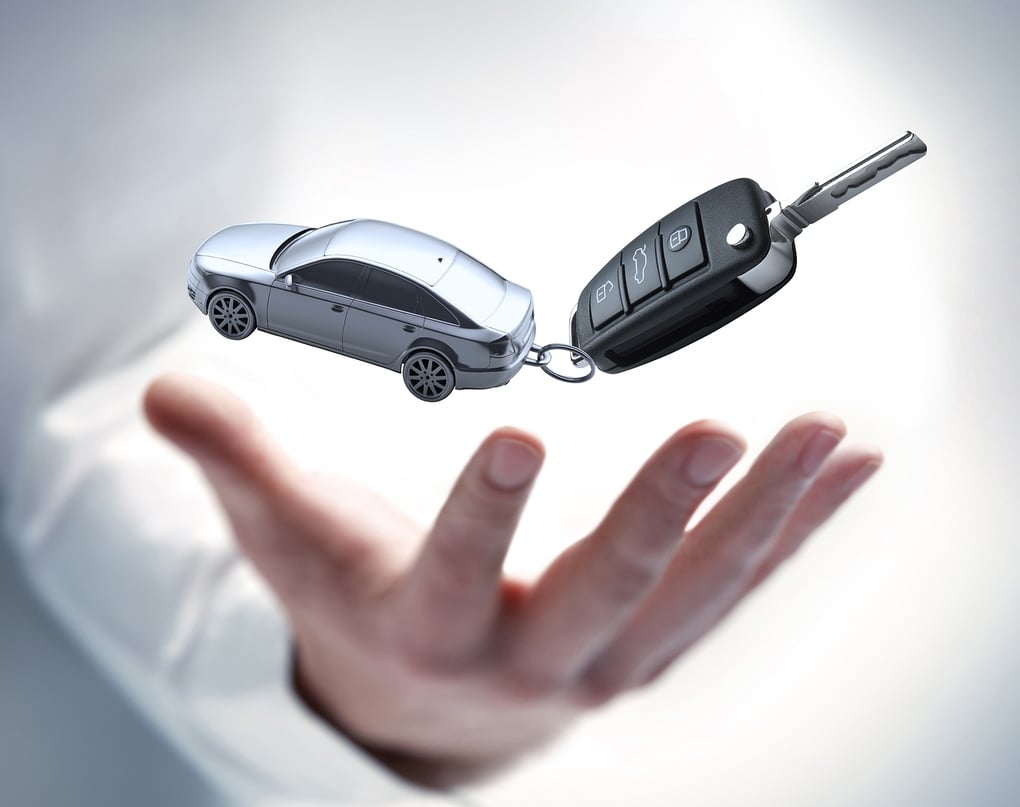On the CarPro Show, we always get a lot of calls about what to do at the end of a car lease.
CarPro End Of Lease Guide
To help you figure out what's best for you, I put together some easy to understand tips on what to do at the end of a lease.
Start Your Research About 120 Days Before Lease Is Up
As you approach the end of a lease, at about 120 days from the end, that is the time to get your lease contract out and look it over. Odds are you haven't looked at it in a long time. Look for the residual value, sometimes called the lease-end value. This is one of two very important numbers you need. The residual value is the amount you can purchase the vehicle for at the end of a lease, and that number is set in stone. Although you may have no intentions of buying your leased vehicle, you still need to know this number to determine if you have equity.
You Only Have Three Options at Lease End
Equity? Every time I mention you could have equity in a leased vehicle, people are amazed and confused. Those who got into the habit of turning in their old keys and getting a new lease often never check for equity. At the end of a lease, you have three options:
#1. Walk away from the lease: You'll owe a disposition fee, mileage charges if applicable, and any wear and tear charges.
#2. Trade the vehicle in: You can trade it in anywhere for any make and model you wish, you are not tied to the dealer you leased from. By trading, you avoid the disposition fee, mileage charges, and wear and tear.
#3. Purchase the vehicle: You have the first right of refusal to purchase your leased vehicle for the residual value. If you do not purchase it, the dealership has the next opportunity, and if it does not purchase it, the lease company gets it back and sends it to auction. Like trading your vehicle in, if you purchase your leased car, there are no fees or charging, unless you are in Texas, which charges sales tax on the purchase of your leased car.
Find Out The True Value Of Your Leased Car
The second important number you need is a true value. Unfortunately, finding a true value is not always easy to do, and it is impossible to do online looking at KBB, Edmunds, NADA and the others. None of the trade-in values online are accurate, especially on vehicles that are only 2-3 years old. The values online are often too high, but I see many cases where the values are extremely low. Either case can skew your decision-making process at the end of a lease. If you've listened to my radio show for any amount of time, you've heard me say, a car is only worth what someone is willing to write a check for. The P.S. to that is Kelly Blue Book, Edmunds, and the others don't write checks.
So how do you actually find out what your leased car is worth? You get an offer from a dealer. It can be a new car dealership, every one of them buys cars, but the trick is talking to the used car manager. If you talk to a salesperson, you'll end up getting a trade allowance, which can be manipulated. When you speak to the used car manager, just ask him should you decide to sell it, what would he pay for it?
In most markets, there are large used car dealers who advertise they want to buy cars and have an easy process for making you an offer. CarMax is the largest in the country, but there are many others who pay top dollar. I have been recommending getting bids from our website, just click SELL YOUR CAR.
I Have The Two Important Numbers - Now What?
Now that we have the two important numbers (the residual value and the true value) it is decision time to figure out which of the three options above is the smartest. Let's use three examples:
#1. You found a dealer ready to write a check for $20,000 for your leased car. The residual value is $18,000. You have $2000 in true equity that belongs to you. You can trade the car in and use the $2000 to reduce the next payment, whether you buy or lease, or you can take your leased car to the dealership that was high bidder, it will pay it off and write you a check for $2000 that you can do with as you wish. Remember, in both these scenarios, you owe nothing further to the lease company.
#2. The opposite numbers apply. The residual value is $20,000 and the best offer you've gotten is $18,000. This is when we walk away. Factor in the disposition fees, wear and tear, and any mileage charges.
#3. The real value and the residual value are the same, both $18,000, for instance. Then you'll want to trade the car or sell it to a dealer to avoid the end of lease charges.
If you love your leased car and just don't want to part with it, that's OK, but you still want to go through finding the true value. There is no reason to way overpay for your own car. I think it is reasonable to pay a little more for your own car since you know the history of it.
IMPORTANT WARNING
In many states, in order to sell your leased car to a dealer, you have to purchase it first. In Texas and California, and I'm sure other states, that means paying sales tax on your leased car, which can cut into or eliminate your equity.
Also, some lease companies will not allow you to purchase your leased car within 120 days of the lease-end date, and severely limit your options. Ford Credit is this way. Inside 120 days, you are pretty much required to turn the vehicle in to the dealer you leased from, then walk away. Be sure to read your contract OR call the lease company to know exactly what is acceptable.
Since the shortages of vehicles started, many lease companies have changed the rules and you must sell it or trade it in to a dealership of the same brand, unless you purchase it first. I disagree with this practice, but it is the new norm for now. Only Toyota and Lexus to my knowledge have not placed restrictions on your lease end options. Check with your own lease company to see what they will allow.
In Conclusion
I've told the story on the air several times, but a personal friend of mine who is on a cycle of leasing was about to walk away from a low mileage Cadillac Escalade. She was just going to turn the Cadillac in where she leased it, and then lease an INFINITI. I made her go through the process above, and she had $9000 in equity she pocketed.
Will everyone have equity? No, there are many factors including what is going on in your market, but right now, most people will, in some cases, a LOT of equity. There will be a ton of leases ending soon with equity due to high used car prices since COVID-19 started. Discontinued cars will not often provide equity, and convertibles in the dead of winter probably will not have equity. Every case is different.
No matter what kind of vehicle you have, or where you are located, you should want to know where you stand before ending your lease.
Keep in mind, too, many lease companies will let you extend your current lease up to six months. For some people, this makes really good sense to buy yourself some time to obtain a new vehicle.


